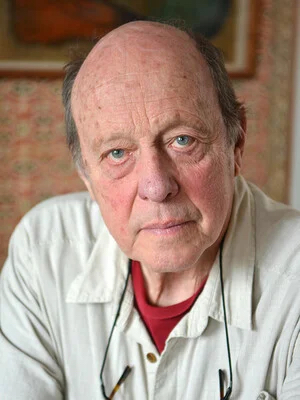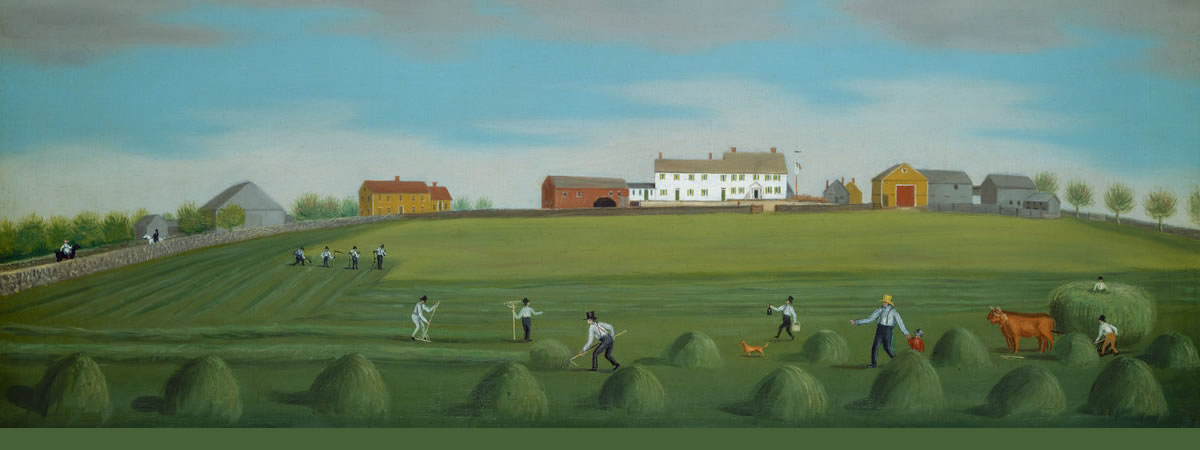
The following article written by Penelope Laurans appeared in the Yale Daily News on July 24:
James Scott (“Scotty”), a revered scholar whose pathbreaking work crossed intellectual boundaries, died on July 19 at his home in Durham, Connecticut, after a long illness. He was 87.
Scott, Sterling Professor Emeritus of Political Science and professor emeritus of anthropology, who also held an appointment in environmental studies, worked at Yale from 1976 until his retirement in 2021.
His 10 books, spanning multiple disciplines, written over the course of his career, were unparalleled contributions to the interpretive social sciences, many of them emphasizing people who resist being captured by states and dogmas.
His early book, “The Moral Economy of the Peasant,” called a “must read for any student of south and east Asian development, agricultural development, or developmental theory,” turned scholarship on its head by addressing the puzzle of why some types of exploitative relations give way to grassroots revolutions, while others do not. Scott was once described by the New York Times as the “unofficial founder of the field of resistance studies.”
In each book since then — among them, “Weapons of the Weak,” “Domination and the Arts of Resistance,” “Seeing like a State,” “The Art of Not Being Governed,” “Two Cheers for Anarchism,” and “Against the Grain” — Scott used his impeccable and on-the-ground scholarship, fierce intellect, and clear and uncompromising eye to write on a broad range of subjects, including peasant resistance, top-down state social planning, and anarchism. Often this writing captured the stories of neglected and misunderstood communities.
After Scott’s death, Prime Minister Anwar Ibrahim of Malaysia paid tribute to Scott, grieving his passing, and calling his work “exceptional.” Ibrahim, once himself a political prisoner for his part in a student protest in support of rural farmers and jailed several times afterward, noted especially Scott’s book “Weapons of the Weak, Everyday Forms of Peasant Resistance,” a pioneering work based on Scott’s two years of meticulous field research in a Kedah village.
Of the 1985 book, Scott later said, “It was the hardest thing I had ever done. It was there that I discovered that resistance was ubiquitous, but it almost always took the forms that were least dangerous. [It] has more of my blood, sweat, and tears in it than anything else.”
In a 2023 film about Scott, appropriately titled “In a Field All His Own” and produced by Todd Holmes ’13 Ph.D., a historian and former student, colleagues from around the world praised Scott’s work: “Many of us are one-book wonders,” said one colleague. “Each one of Scott’s books was a major book — and they were all different.” Another called each of Scott’s books “a major intervention,” emphasizing their remarkable “spin off” effects and influence on other scholars. And another, summing up all, called Scott himself “a bellwether for exciting social science.”
In an email to a friend, written in the weeks before he died, Scott reflected with pleasure that his new book was finished.
“I’m rather pleased with it and it should appear within the next six months in a hardbound copy with Yale Press of course, as usual,” he wrote. And then — at the age of 87, on dialysis, and after 10 pathbreaking books — he continued, “I think I shall now confine myself to opeds (sic) and book reviews that I desire to write and not burden myself with another book.”
This final book, “In Praise of Floods: The Untamed River and the Life it Brings,” is scheduled for publication by Yale University Press in February 2025.
Another of Scott’s enduring achievements is the groundbreaking Program in Agrarian Studies at Yale, which he founded, and of which he was the longtime director, known for its broad range across political science, history, anthropology, geography, and agrarian and environmental studies. Now 33 years old and thriving, the program, which is part of the Yale MacMillan Center, has brought together students and scholars from across the world to think, discuss, argue, and learn. The dozens of books published in the Yale University Press’s Agrarian Studies series stand as permanent testimony to the group’s scholarly contribution.
During more than five decades at Yale, first as a graduate student and then as a member of the faculty, Scott made friends across the university, proving in his Yale life that he was, as one colleague called him in the film, “one of the great intellectuals of our time.” His intellectual tastes were catholic. He talked politics with political scientists, philosophy with philosophers, history with historians, anthropology with anthropologists, and poetry and novels with English professors.
He also learned beekeeping from beekeepers and sheep-shearing from farmers, becoming an expert practitioner of both. He could be seen, when he was in town, attending theater at the Yale Rep or Long Wharf. He was in the fullest sense of the term a Renaissance man.
Despite his strong commitments to teaching and writing, Scott made time to advise scores of students and post-doctoral fellows, inspiring them and urging them toward deeper and more original agendas and insights. He also took a term as president of the Association for Asian Studies, launching new directions in border-crossing scholarship. He tirelessly supported intellectual life in Myanmar, founding the bilingual Independent Journal of Burmese Scholarship, which now fights for persecuted Burmese facing the onslaught of state violence.
James Scott was born in Beverly, New Jersey, the son of a doctor with West Virginia roots who died when Scott was nine years old. He was educated at the Moorestown Friends School, a small Quaker school where the Quaker ethos, he said, had a distinct influence on him.
One reason: the Quaker meeting, a form of religious gathering with no clergy, where a group of elders held prominence and anyone could speak, was intellectually and emotionally appealing to him — “an anarchist step,” as he said. The second reason was the history of Quakers as proponents of peace, dissenters and outliers; some were conscientious objectors even during World War II. Scott said he did not agree with them, but he admired their “courage, persistence and dignity.” As he put it, Quakerism acquainted him with people “who were capable of being a minority of one.”
And, thirdly, Moorestown Friends, in the ethos of the Quakers, gave their students the opportunity to attend week-long work camps where they worked with the indigent and needy in Philadelphia. This experience, as he said, “stayed with me forever.”
Scott lived what he studied. Like some of the Quakers he saw in meetings, he was a dissenter and an outlier. Nothing intimidated him, and he resisted pomposity and domination in all their forms.
Each of his intellectual steps, as Scott described them, were a combination of happenstance and luck — the kind of happenstance and luck, others suggest, that happens to brilliant people. At Williams College, in love with his future wife, he neglected his senior essay on German mobilization, assigned to him by his advisor, and as a fallback became the advisee of a scholar who wanted to know more about Burma, and suggested he write about its economic development. He had no idea where Burma was. Later, instead of going straight to law school, he decided to spend a year there —and that sparked his career.
At Yale, where he earned both his M.A. and Ph.D., the economics department was unwilling to allow him to begin graduate study without a second semester of calculus when he wanted to attend a trade union delegation trip to North Africa, as a part of his political activities — and so he persuaded the political science department to admit him instead. Years later, in 1978, when he was a member of the faculty and wanted to spend a year away from Yale in a village in the Malaysian state of Kedah (he spent two), he was advised that the decision would “ruin his career.” Instead, as he noted, it made it.
Always working against the grain, always blind to what was au courant in his disciplines, always suspicious of any administrative power that reflected the power of the state, always focused on his passion for his work and the causes for which he cared, he went his way, an inspirational teacher and colleague, invested in what he believed, transforming scholarship as he went.
Alison Richard, former Yale provost and distinguished anthropologist, summed it up when she concluded, “He clearly was just an amazing, brilliant figure.”
Scott’s wife, Louise Goehring Scott, died in 1997. He is survived by his three children, Aaron, Noah, and Mia; and by his longtime partner, the anthropologist Anna Tsing ’74. The funeral was private. A memorial gathering will be arranged in the coming year.
Working to the end, Scott wrote in one of his last emails: “Most of my interest these days is concentrated on the revolution in Burma and my participation in the independent journal of Burmese scholarship. The journal is, incidentally, the only journal that is fully bilingual, and has published issues on desertion from the military, feminism, the media and Civil War and the Rohingya.”
Fervent, impassioned, and deeply committed to what he truly believed — friends agree this concluding effort captures the essence of who Jim Scott was, what he cared about, and what he accomplished.

